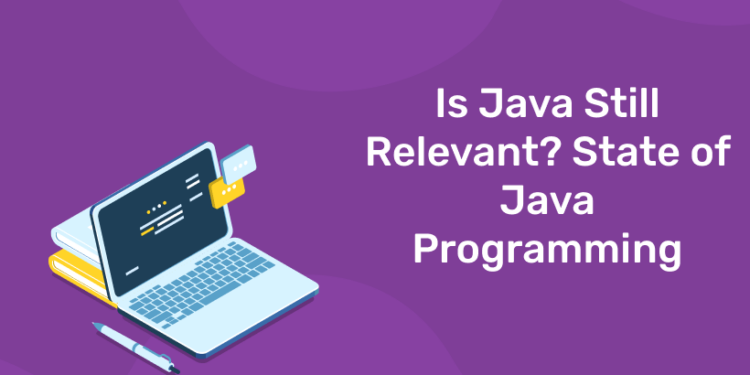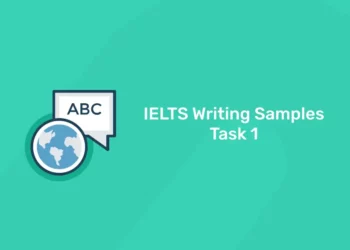Table of Contents
In 2022, the Java programming language turned 26. It means Java is quite old by the programming language standards. That’s one of the reasons you may wonder whether Java is still a commonly used language and whether a Java-based application created today will stay competitive in years to come.
Java keeps up with the times
After 26 years of life, Java is doing very well. More than 90% of Fortune 500 companies use this language, and the TIOBE Index names Java the most popular programming language in the world. The Java language is evolving to keep up with tech innovations and software development trends. It is commonly used in various segments of software development, including web and mobile development, and such trending techs as big data, IoT (Internet of Things), blockchain and artificial intelligence (AI).
In 2018, Java switched to a 6-month new release cycle. Previously, new versions of Java were released every two to three years, while sometimes we had to wait for a new release for six to seven years. But starting with Java 10, fresh releases come out in March and September each year, which makes the Java community at the leading edge of innovation.
Naturally, the number of jobs for Java developers globally continues to grow. Today, there are nearly 8 million Java programmers worldwide. And this is one of the main reasons why many organizations opt for this language in their development projects. An extensive workforce offer makes it easy for businesses to find well-qualified yet affordable Java developers.
Grab the opportunity to learn Java with Entri! Click Here
Java in IoT and other trending techs
1: What is the default value of a boolean in Java?
According to the IoT Developer Survey, developers of embedded software solutions for IoT devices choose Java as the most important programming language in this field. One of the main reasons for that resides in the high portability of the Java language. Since Java runs in the JVM (Java Virtual Machine), developers can easily transfer Java code to any chips, devices or software packages with the pre-installed JVM.
There are many other Java Trends, besides IoT. Development projects in big data, augmented reality, robot vehicles, and cloud computing rely on the Java code to a great extent.
Experts about the future of Java
Experts in the software development field confirm that Java will remain one of the most widely used programming languages in the world in the near future.
“The language and its frameworks allow building software that is scalable, highly secure and powerful, which are the three pillars of modern applications. Java frameworks provide excellent support for advanced streaming apps through reactive function. They also offer robust functionality for using within the newest cloud computing models – serverless and FaaS apps. I’m sure this will make Java and Java-based frameworks confident leaders in the worldwide practice of back end development,” stated Vladimir Sinkevich, Head of Java Development at ScienceSoft.
“Languages are hard to change, so Java will continue to lead. It will be interesting to see if other languages begin to use the Java Virtual Machine (JVM). Not just JVM dialects like Scala and Kotlin but other languages with their own user bases, like Ruby, JavaScript, or Python,” said Mark Little, VP Middleware Engineering at Red Hat.
“We cannot throw away the investment we made in the industry and training. There is no need to learn a whole new language and start from scratch. As such, it’s important for Java to run well in new environments,” noted Anders Wallgren, Electric Cloud’s CTO.
Should you choose Java for your next development project?
Despite being 25 years old, Java is still in great shape, and Java developers have every reason to be optimistic about the future. Considering Java is an important part of development in many IoT, AI, big data, and blockchain projects, it’s fair to say that Java contributes to driving IT innovations these days. Should you be seeking for professional JAVA consulting or need to support your project with advanced Java expertise, our selected Java architects and developers will be happy to help.
Is JAVA Still Relevant in 2022
For the first time in over 20 years, Python has overtaken Java as the most popular programming language globally.
This might seem like an unremarkable piece of news to the general populace. But, it holds special significance for the programming world. First and foremost, it adds more fuel to the already burning speculation that Java is dying a slow death.
A quick Google search using the keyword “is Java still relevant” brings up millions of articles discussing the seemingly uncertain future of Java.
And as expected, programmers have divided views on this topic. One can see proponents and adversaries of Java throw innumerable arguments, facts, and figures at each other to support their stance.
Now we plan to stay away from this dogfight. However, the relevance of Java in 2022 still piques our interest. We still want to know the clear-cut summary of the scores of articles that talk about Java’s death. And, we guess, so do you.
Hence, we have curated this article to answer some trending and impending questions regarding the sustenance of Java in this competitive world. Read it till the end if you plan to take up Java as a career option or just want to quench your curiosity.
Grab the opportunity to learn Java with Entri! Click Here
Java at a Glance
Let us first look at Java and what made it so special back in the day.
Java is a high-level computer programming language whose first iteration was released in 1995, courtesy of James Gosling.
Based on the OOP ( object-oriented programming ) paradigm, it enforces the concept of WORA (write once run anywhere) to reduce programming dependencies. Thus, a Java program written on one machine can be run as-is on others as long as they support JVMs (Java Virtual Machines).
JVMs are essentially virtual computers whose purpose is to translate Java bytecode — non-executable intermediate code generated by the compiler as a .class file — to machine code. JVM-equipped machines can run Java bytecode regardless of their internal architecture (cross-platform).
Due to its two-step compilation process — first from source code to bytecode and then to machine code — Java is also called a compiled and interpreted language.
Primarily, Java finds use in the development of
- mobile applications
- client-server web applications
- video games
- cloud applications
- IoT applications
- Big data projects
- Android (mobile OS)
Java is one of the most popular programming languages today despite being over 25 years old. More than 9 million software developers use Java as their primary language thanks to its reliability, versatility, security, and ease of use.
The Relevance of Java in 2022
The following pointers assess the feasibility of Java by judging it against several crucial parameters of a programming language.
1. The Job Market for Java Developers is Hot even in 2022
Job markets are one of the most overt indicators of any programming language’s relevance, including Java’s.
And going by the reports, one of the most in-demand job profiles today is that of a java developer. A quick look at some of the major employment websites, such as Naukri.com, LinkedIn, Glassdoor, etc., will present you with thousands of job postings for hiring java developers.
However, it is not just the demand but also the salary Java developers get that makes Java a primary programming skill to have. Java developers, on average, get paid INR 450,790 yearly, with the numbers fluctuating between INR 2 Lakh and INR 10 lakh depending upon a developer’s experience.
Thus, looking at the state of the job market for java developers, it is difficult to presume that Java is becoming obsolete.
2. Java is a Jack of all Trades (and a Master in some cases too)
Even if you are not a programmer, you must know or have heard that no programming language is perfect. And Java is no different than the rest.
However, it was still the most widely-used programming language until recently. And that is predominantly because of its extensive applicability in diverse environments.
Java Enterprise Edition (Java EE) is still the go-to Java-based platform for running enterprise applications. Enterprises use Java EE to run their software due to its platform independence, support for most modern hardware, and demand for fewer technical dependencies. Java EE is also highly cost-effective, easy to maintain, and scalable.
Java is also the number one choice for Cloud computing and IoT development due to its general-purpose, versatile and robust nature.
Developers working with Android, the most popular mobile operating system today, write most of their code in Java.
Apart from the above use cases, Java is also used to write Machine Learning programs, create neural networks, and much more AI-related stuff.
And let us not forget Java FX, a popular platform for creating powerful desktop GUI applications.
Thus, in a sense, Java is virtually limitless, finding applications in almost all aspects of modern computing.
Learn Coding in your Language! Enroll Here!
3. Java is Learner-Friendly
Let us be honest, no matter how fast, efficient, and multi-faceted a programming language is, not many programmers will use it if it is not easy to learn. And this is where Java shines the most.
Java syntaxes are some of the easiest and most straightforward lines of code to get used to. In short, Java is a highly programmer-friendly language.
It is most suitable for beginners who have trouble memorizing long and complex syntaxes. And even more so for professionals learning it to expand their portfolios.
What makes learning Java even easier is the wide availability of high-quality, in-depth tutorials scattered across the web. Also, there are several Java forums where budding and experienced developers can seek help from Java experts.
4. Rich Selection of Intelligent IDEs
An IDE or Integrated Development Environment is a software development platform that integrates a host of software development tools into a GUI.
Java, being an old and popular programming language, has a selection of some very intelligent IDEs such as IntelliJ, NetBeans, and Eclipse.
Programers using these IDEs can code much faster while maintaining their efficiency and maximizing productivity.
5. A Helpful, Resourceful, and Welcoming Community
One of the reasons why a programming language goes obsolete is when the number of its users reduces drastically. However, with Java, this does not seem to be the case.
Java currently boasts one of the most vibrant, mature, helpful, and encouraging communities of any programming language. And it is not just limited to online help forums.
The JCP (Java Community Process) is an initiative that takes into account the views of its members, particularly Java Developers, to alter and enhance various aspects of Java components. The components include specific Java versions, libraries, any technical additions to the Java Platform, etc.
JCP uses what are called Java Specification Requests (JCRs) to document the proposed specifications for any new or existing Java technologies by the Java Developers community. These specifications are then put in front of a board called EC (Executive Committee) that casts the final vote of approval.
Oracle, the current proprietor of Java, also has a dedicated JAVA SE Community page . Here, the Java community members can access stuff like newsletters, magazines, language summits, bug databases, discussion forums (of course), and more.
In short, the Java community, as Oracle states it, is integral to the overall development of the Java Platform as well as the language.
6. Backwards Compatibility
One of the standout features of Java that not many programming languages come with is strict backward compatibility. It means that programs written in older Java versions can run on newer JVMs without any hiccups.
Backward compatibility especially marks its presence in big Java ecosystems — enterprises, for example — where several machines use different versions of Java. This feature ensures that code compiled on a Java 5 machine will run on another machine with Java 8 or 9 without giving any errors or exceptions.
7. A Stable and Prudent Release Cycle
Starting with Java 11, Oracle has been releasing new Java versions every six months. These releases allow Java developers to test new platform features and performance enhancements.
Apart from the six-month release cycle, Java gets an LTS (long-term support) release every three years. Oracle promises regular updates for LTS releases spanning several years. For instance, Java SE 8, the first LTS release launched in 2014, will receive support till December 2030.
Thus, the Java release cycle caters to developers who want the newest updates and features at the earliest and programmers who want to stick with older Java versions for convenience.
Grab the opportunity to learn Java with Entri! Click Here
8. Performance
Programmers familiar with the shortcomings of Java must have heard people call Java a slow language. However, Java has been in existence, or thriving, for 25 years. And 25 years is long enough to tweak a language’s performance significantly.
One of the primary reasons why several companies use Java is its real-world performance and code-optimization capabilities.
Java uses the JIT (just in time) compiler to improve the run-time performance of Java programs. The compiler translates the Java Bytecode into machine code during run-time to reduce the additional processing burden of the JVM, which is already loading the classes and other pre-requisites for the Java code being executed.
Java might not be the fastest language around, but it is robust and secure, which are two essential qualities of a high-performance language.
9. It is Backed by Oracle Corp.
In 2010, Oracle Corporation finally acquired Sun Microsystems, a technology company and the patron of Java, for a sum of $7.4 billion.
Initially, Oracle Corp. rubber-stamped its decision to purchase Sun sighting the concern that most of its systems used Java (they still do). Thus, if some other firm bought Sun before them, Oracle would get into a difficult situation.
However, after acquiring Sun, Oracle began planning initiatives to improve the language and expand its community.
Today, Oracle is launching regular Java updates, has begun a Java SE subscription service for firms to receive and manage new updates efficiently, is making fundamental changes to the Java garbage collection service, and more.
And in the years to come, Oracle has plans for Java to not only keep it relevant but also push it to surpass its counterparts by a significant margin.













